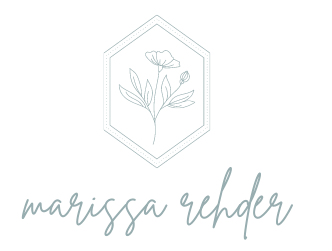I'm not going to lie, when I first thought about journaling as a teacher or an adult in general, it felt really silly and like something only young girls do. In my mind, journaling was something for young adults or children to do in order to “find themselves” or manage the ridiculous amounts of hormones they have. The truth is that it's for anyone who can write.. even teachers journal! You might be wondering what do teachers journal about? And why should I make the time to do it but I'm going to tell you EXACTLY why you need to add this to your daily/weekly routine!

What is effective journaling?
Simply writing things down is not the most effective way to journal. In order to receive all of the benefits of journaling, it has to be done effectively. What does that look like?
Effective journaling is using journaling to help you meet your goals or improve your quality of life. This can look different for everyone and the outcomes can vary but they are almost always very positive. Journaling can help you clear your head, sort your thoughts, feelings, help modify behaviors, and even reduce the effects of mental illness.
Journaling and Mental Health
The Science behind Journaling:
“Journaling requires the application of the analytical, rational left side of the brain; while your left hemisphere is occupied, your right hemisphere (the creative, touchy-feely side) is given the freedom to wander and play (Grothaus, 2015)! Allowing your creativity to flourish and expand can be cathartic and make a big difference in your daily well-being.” (Positive Psychology, 2020)
In essence, journaling can improve you life in a variety of ways, including:
- Boost your mood
- Improve your overall well-being
- Reduce symptoms of depression
- Reduce affects of trauma
- Create happiness through focusing on positives
Types of Journaling
Keeping a journal can help you fully explore your emotions, release tension, and fully integrate your experiences into your mind (Scott, 2018). There are many reasons someone journals- including but not limited to stress reduction, goal setting, positive affirmations, reduce anxiety and depression, improving focus.. and so many more.
Before you start journaling, you need to ask yourself, why am I writing? What's the goal I want to accomplish through journaling? Once you have determined your purpose, then you can decide which type of journaling will best fit your needs. Here are some different options:
- Gratitude Journal- write down 3 things you're grateful for each day.
- Reflection Journal- reflect on your teaching, lessons, and self.
- Bullet Journal- hit up Pinterest, your options are endless with this one!
- Lists- write out list of positivity, things you need to get done, goals you have, etc.
- Timed- set a timer and write about a topic for at least 5 minutes.
- Goals- goals are much more likely to become reality if you write them down.
- Workout Journal- keep yourself accountable and track your thoughts and feelings about your workouts.
- Food Journal- keep track of you food habits.
- Sentence starter- use this as a prompt to get you writing.
- Letter (sent or unsent)- write a letter to send to someone (or don't..) and use it to express your thoughts and feelings to that person- positive or negative.
- Free Write- write about anything that's on your mind or your heart.
- Prayer Journal- write out a prayer each day.
- Dream Journal- keep track of the dreams you remember.
- Travel Journal- a great way to keep track of the events, thoughts and feelings you're having while on vacation.
- Project Journal- have a project like a remodel coming up? Why not record all your thoughts and feelings throughout it?
Journaling for Teachers
If you're still with me, I'm sure you can see the benefits of journaling to help with your mental health and happiness.. but you might be wondering why journaling as a teacher is important. Let me paint a picture for you..
Have you ever had one of those days where you're utterly exhausted? or super frustrated at how something went that day? Maybe a lesson you thought was going to be amazing completely flopped instead.. When days like this happen, it's easy to carry all of those thoughts and feelings home with you. One of my favorite ways to avoid this is to journal for just 5 minutes before I leave school.
The first journal I have is a gratitude journal. Each night before I leave, I quickly write down 3 things that I'm super grateful for that happened at school that day. It might have been as simple as a hug from a kindergarten friend or a coworker stopping in to see how my day was going. The best part of this kind of journaling is that you don't need anything special, just a piece of paper. If you are interested in a specific gratitude journal, I have created this one that includes inspirational quotes and spans the whole year. You can find it here.
The other type of journaling I LOVE is self-reflection journaling. It allows me to take into account my goals and plans for the upcoming week, month, school year and reflect on my teaching, how I am taking care of myself and my students, and do it all in a productive self-loving way. I had a very hard time finding a journal that allowed me to do this so after searching for over a year, I finally made my own. I hope you will find it as useful as I have! If you're looking to get your hands on it, you can find it here.
I hope you found this information helpful and will give journaling for teachers a try!









